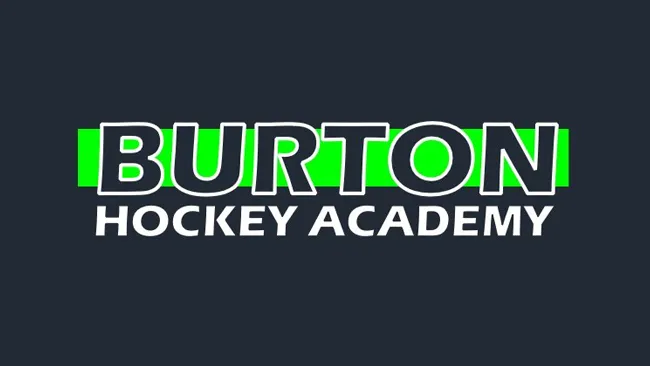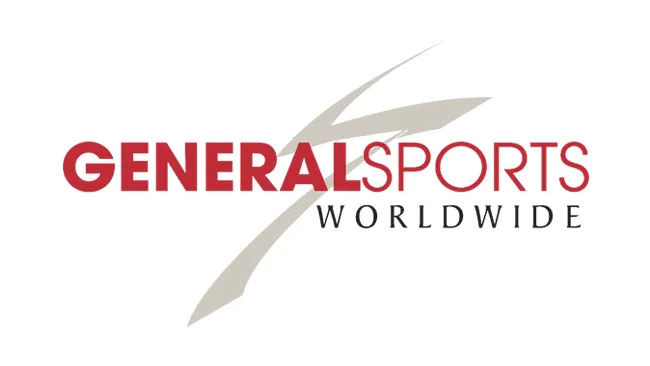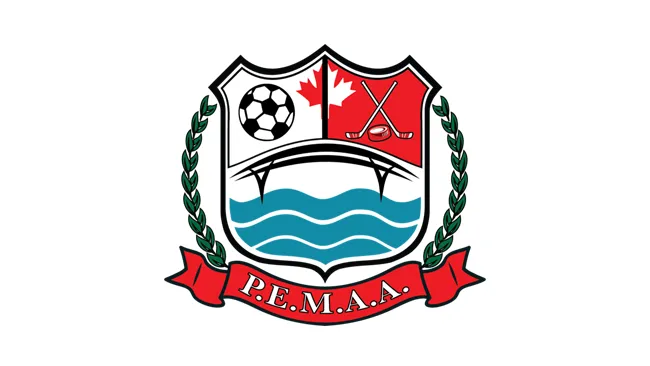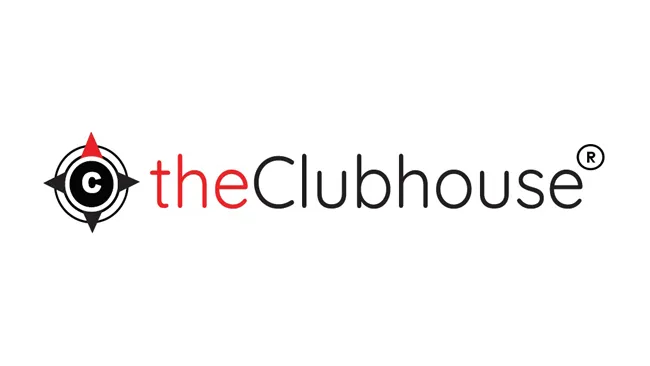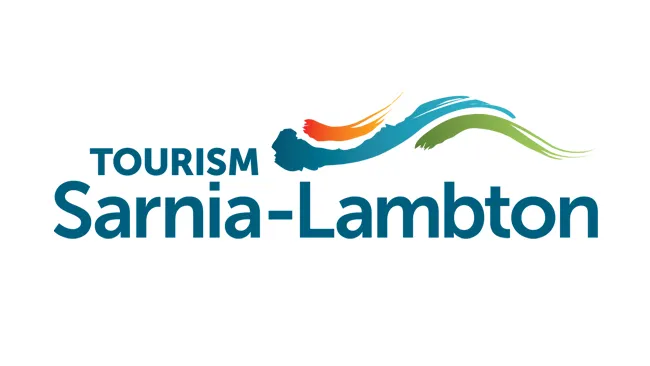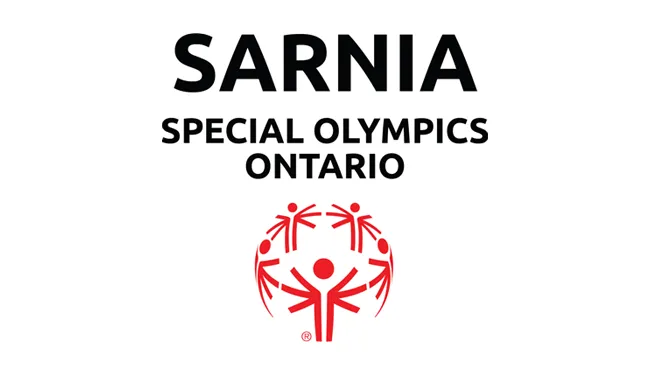

Sports Business Management
Overview
Develop strong leadership, team building, project management, marketing, and communication skills and be part of a group of graduates who are industry ready and highly sought after by employers.
The Lambton College Sport Business Management, Ontario College Graduate Certificate prepares graduates for careers in the exciting and ever changing sport business sector.
With a Canadian sport industry focus, the curriculum enables graduates to be leaders in management and operations in this exciting industry. The program’s curriculum prepares graduates with knowledge and skills in sport marketing, sales, sport sponsorship, event bidding and planning, facility operations, human resources, finance and administration. Experiential learning is built into the curriculum allowing students to apply skills and knowledge to projects with organizations and clients in the sport industry and expand their business leadership skills through collaborative team projects. Graduates may find employment in a variety of sport business professions.
Program Partners
Students in the Sports & Recreation Management program are given the opportunity to work with a number of companies through various co-op, internship and work placements.
Admission Requirements
- Ontario College Diploma, Ontario College Advanced Diploma, Degree, or equivalent
The admissions process is competitive and meeting the minimum academic requirements does not guarantee admission.
Lambton College reserves the right to alter information including admission requirements and to cancel a program or course at any time; to change the program curriculum as necessary to meet current competencies or changes in the job market; to change the pathways to third-party certification bodies; or to withdraw an offer of admission both prior to and after its acceptance by an applicant or student because of insufficient applications or registrations or over-acceptance of offers of admission. In the event Lambton College exercises such a right, Lambton College's sole liability will be the return of monies paid by the applicant or student to Lambton College.English Language Requirements
Applicants must submit proof of English proficiency through one of the following in-person test methods:
- IELTS Academic: Overall score of 6.0
- TOEFL IBT: Overall score of 70
- PTE Academic: Overall score of 53
- CAEL: Overall score of 60
- CELPIP: CLB 7
- Lambton Institute of English Placement Test: Overall score of 70
- Completion of an English pathway program at a recognized partner school
Meeting the minimum English requirements does not guarantee admission. Students with higher English proficiency scores will receive priority in the admission assessment process. Not all students will qualify for EAP-3106 in place of the required IELTS or TOEFL test scores.
Experiential Learning
Recess - Focus on Mental Health
The Recess program is designed to create intentional opportunities for students and faculty from the Sports & Recreation Management program to participate in a variety of activities designed to promote laughter, camaraderie, and physical activity .
This optional activity happens one hour each week and is meant to promote good mental health. We often hear from past students about how large a role Recess played in their success in this program.
Real World Experience within Course Curriculum
Our students are exposed to a variety of projects and activities that introduce them to potential employers and give them experience working in the field. Examples include:
- Create and present recreation programs for community partners.
- Host drop-in sessions for non-sport related and sport related activities.
- Organize and run sports leagues and special events in second and third year.
- Run community event with 400+ participants.
- Gain social media experience with community partners is second and third year.
- Network with over 140 professionals from the MLB, NFL, NHL, and NBA.
- Complete portions of National Coaching Certification Program (NCCP) training.
- Receive training from the Detroit Red Wings and sell tickets for the NHL team in third year.
Accreditation Council for Business Schools & Programs (ACBSP)
This program has achieved ACBSP Candidacy status which means that this program aligns with global business standards and prepares you for success in your career.
ACBSP Candidacy signifies our commitment to high quality, industry relevant education, ensuring you gain not just knowledge but a competitive edge in the business world.
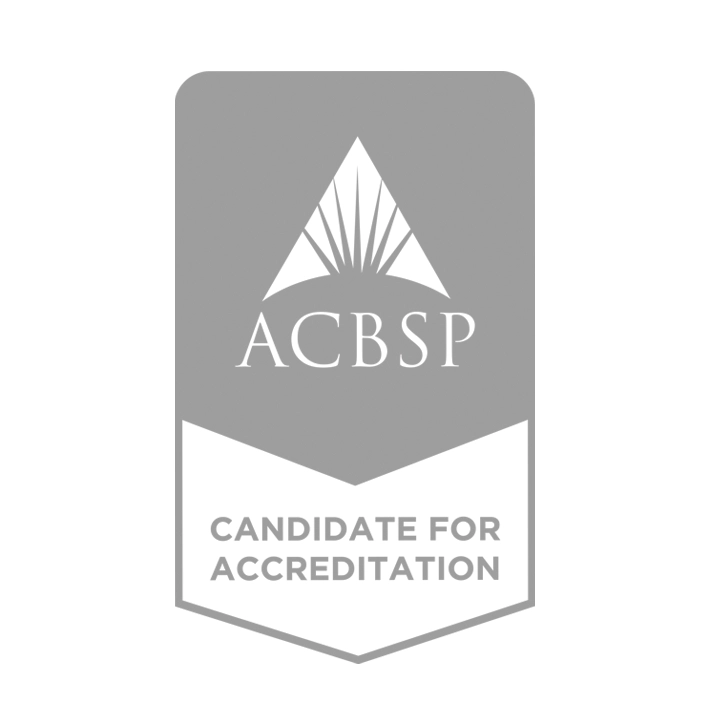
Costs
- Term 1 $9,410.48
- Term 2 $8,624.56
- Term 3 $9,324.56
- Term 4 $0.00
Total Cost of Program
Tuition fees are estimates and are subject to change each academic year. Fees do not include books (unless specifically noted), supplies or living costs.
Lambton College reserves the right to alter information including admission requirements and to cancel at any time a program or course; to change the location and/or term in which a program or course is offered; to change the program curriculum as necessary to meet current competencies or changes in the job market; to change the pathways third-party certification bodies; or to withdraw an offer of admission both prior to and after its acceptance by an applicant or student because of insufficient applications or registrations or over-acceptance of offers of admission. In the event Lambton College exercises such a right, Lambton College’s sole liability will be the return of monies paid by the applicant or student to Lambton College.
Additional Fees
WIL Project Fees
Students who are not successful in securing a co-op or fail to meet the co-op requirements will need to register in CPL-5559 WIL Project.
There is an additional fee of $2,100 for each student enrolled in the WIL Project course.
Important Dates, Deadline & Late Fees
For additional information on registration dates, deadlines and late fees please refer to Registration Dates and Deadlines.
Student Fees
A student services fee is included in your tuition.
Health Insurance Coverage
Emergency medical insurance is mandatory for all international students at Lambton College. This includes students who are full-time and part-time and who are on a co-op. This insurance is provided by GuardMe - a third party insurance provider.
See Insurance Costs & DetailsTechnology Requirements
In order to keep pace with the requirements of each and every course in your program, Lambton College requires that each student have access to a laptop while studying at our college.
Opportunities to Learn Outside the Classroom
Courses
Introduction to Sport & Recreation Management
Students are introduced to various topics essential to becoming professionals in the Sports and Recreation Management industry and the career opportunities available. The importance of leadership, critical thinking, professionalism, recognition of personal strengths, public speaking and the structure of sport organizations are explored. Throughout the course, students engage with industry professionals using the Clubhouse platform and also volunteer with local industry partners to assist in building their personal portfolio.
Sports Marketing
This course provides students with an understanding of the fundamental concepts of marketing and how they pertain to sport including strategic marketing management, marketing mix, assessing the marketing environment, the role of research, segmentation, sponsorship, and consumer behaviour. Utilizing this knowledge, students create marketing materials for campus and community events that are specific to target audience.
Canadian Workplace Health & Safety
In providing an overview of Canadian Labour laws, workplace rules and regulations, and Health and Safety Hazards in the workplace, students gain an understanding of the responsibilities of employers, worker's rights as well as the responsibilities of various organizations in the Canadian labour industry. Awareness and recognition of various health and safety risks arising from a variety of occupations is also covered.
Introduction to Managerial Accounting
The managerial accounting course provides students with skills to become highly effective in environments where quick decisions are required. Students learn to use financial information to make quick strategic decisions including how to use data to evaluate the effectiveness of current operations. Learning to maximize the profitability of operations, students interpret financial statements and supporting financial data that drive decision making. Topics covered in this course include cost management, analysis of financial performance, application of pricing strategies, and budgetary planning and control for a business enterprise.
Workplace Communication Applications & Analysis
In today's management and administration workplace, having strong computer skills is essential. This course provides students with resources and guidance to develop skills in Microsoft Office applications, focusing on three key areas: Word, Excel, and PowerPoint. While learning about these programs, students develop skills in time management, accountability, and their ability to follow direction.
Professional Communications
This course is designed for international students with diplomas or degrees. It focuses on polishing communications skills acquired through one's academic career and workplace experience. Through various business writing and speaking scenarios, students learn Canadian business practices and communication styles, incorporating inclusivity and diversity. Close attention is paid to proper incorporation of the intellectual property of others to ensure academic integrity. Students will practice organized and dynamic speaking and will strive for polished business documents.
Job Search & Success
This course provides student with skills and knowledge to help support their career search and succeed in the workplace. Students align their personal skill set and goals to guide them on their career paths. They will learn how to effectively conduct a job search, build a professional and well-tailored resume and cover letter, and develop and practice interview techniques. Students will also develop their personal brand to help support effective career networking and aid in their job search. Teamwork and collaboration in the workplace are also discussed. Self-reflection is used to inspire insight and support their professional career journey.
Risk Management
In this course, students explore the legal concepts of negligence and liability and relative legislation, regulations, standards, and policies affecting the provision, safety, cleanliness, and maintenance of facilities. Students are introduced to methods of identifying risk, assist in designing strategies to prevent or minimize risk, and apply risk management strategies.
Special Events Management
Students examine various special events and the methods for achieving event goals. Utilizing principles of event management, students gain experience through engagement in the planning, organizing and delivery of events for various community partners. In groups, students plan, organize and deliver their own Special Event. Throughout the course, students volunteer at two Special Events. Students are introduced to Sport Tourism Canada and its current policies and practices for bidding and hosting events in Canada.
Fundraising & Sport Sponsorship
Sponsorship and fundraising play an important role in the success of sport in today's society. Students gain an appreciation for the unique challenges generating revenue through fundraising and sponsorship for sport. Students explore how marketing concepts are integrated to meet the specific needs of sponsors and fundraising campaigns and the importance of building and maintaining relationships.
Selling
This course is designed to provide students with an introduction to professional selling and the skills required to find success in relationship building and sales. Students are introduced to the many career alternatives available as well as the day-to-day expectations of a successful salesperson. The focus is to assist students develop their personal brand and strengthen their presentation, communication, and negotiation skills through role-playing, simulations, and applied learning exercises. Both traditional and digital prospecting methods are explored, along with the application of effective discovery, proposal creation, and problem resolution strategies, all in support of creating a customer relationship built on trust. Topics include goal setting, planning, time management, sales analytics, key performance indicator analysis, and customer relationship building. Students apply their learning in a simulated, professional business-to-business sales environment.
Social Media Marketing
This course explores online marketing tools and tactics, such as social media, email, digital advertising and content marketing, that businesses can use to build a profitable relationship with their customers. Students engage in simulated social media, email and digital advertising campaigns to gain a better understanding of how to use these tools in their marketing efforts. Along with learning about digital and social media marketing, students learn general principles of marketing that are key for every business, regardless of industry or size: identifying who your customers are; understanding what needs they have that you are uniquely able to serve; creating a brand voice that speaks to them; identifying who your competitors are; deciding how to differentiate your offering from theirs; and creating a plan for engaging customers across social media and digital advertising platforms.
Integrated Marketing Communications
In today's marketing world, there are more advertising contact points and specialized media competing for consumer's attention than ever before. To effectively break through the clutter, companies need to use a well-coordinated approach to selecting different promotional methods to differentiate their communication and present a consistent message to target audiences. This course introduces students to the concept of integrated marketing communications (IMC); a strategic planning process that helps companies identify the most appropriate and effective methods for communicating and building relationships with consumers. Students will learn the essential components of an IMC plan, including how to integrate advertising, sales promotions, public relations, direct marketing and digital media to maximize the impact of communications. Students will utilize this knowledge to build their own comprehensive marketing communications plan for a selected product or service.
Project Management
This course will provide the student with an overview of the structured processes and knowledge areas of project management within the context of organizations. It will contrast the differences between operational management and project management. It will provide the student with numerous tools and techniques used to initiate, plan, execute, monitor and control, and close a project. Students learn the vocabulary, definitions, principles and concepts of project management and working in a project team.
Leadership in Change Management
One of the few constants in today's competitive business environment is change. Change leaders must have knowledge of what drives successful change, what challenges successful change, the options available, the ethical issues associated with change, and understand organizational theory and behaviour and its impact. Leaders are facing change as it relates to sustainability, climate change and the implications for business in the ESG realm. The environment, social-justice, diversity, and inclusion are all considerations and present organizations with both opportunities and challenges as we look with urgency to our collective futures. Effective leaders must identify the correct approach to leading transition within an organization, utilize skills required to lead in chaotic and fast-paced environments, optimize organizational structures, analyze, and assess change effectiveness, and ready their organizations to thrive. Through case study, readings, teamwork and class discussion, this course explores these knowledge areas and provides opportunity to practice and develop leadership skills relevant for successful change management.
Facilities Management
This course introduces students to the macro and micro aspects of managing sport and recreation facilities. Beginning with a focus on the evolution of sport and recreation facilities students will explore the impact such facilities have on society. Integrating theory with practical opportunities and facility tours, students explore facility design concepts, day-to-day operations, physical and human resource management, and activity and event programming.
Tournaments & League Management
Through this course, students integrate the theoretical knowledge of tournament and league formatting and scheduling with practical experience by organizing, operating and evaluating their own tournaments and leagues. The reasons for matching the level of participation with individual characteristics including ability, age and level of competitiveness are discussed. The importance of policies, regulations, tiebreakers and rules are explored.
Video & Audio Production
Video and audio production have become highly desirable skills in our modern, media driven world and especially so for aspiring professionals in the Esports industry. In this course, students explore the impact of media in our modern world, gain an appreciation for and develop production skills that demonstrate the use of flow in different mediums, and explore factors that can be manipulated to alter audio and video productions. Students are introduced to post-production techniques and will have the opportunity to develop and demonstrate their skills through the completion of a term project.
Human Resources Management
Effective Human Resources Management (HRM) is critical to the success of organizations today. This course will provide an overview of the key concepts of HR management and will include some history and theory of the HR function and important terminology. It will introduce students to the core competencies of effective HR practitioners and allow for self-assessment against these competencies. We will be discussing core HR practice areas such as Strategic Planning, HR Planning, HR Administration, Talent Management, Training Learning and Development, Performance Assessment, Total Rewards (including Compensation and Benefits) Employee and Labour Relations and Health and Safety in the workplace. In addition, the course looks at the legal environment for effective HR management, and the role of HRM in mergers and acquisitions and organizational change management.
Co-op Work Term
Co-operative education provides students with the opportunity to apply classroom learning to the workplace, undertake career sampling and gain valuable work experience that may assist students in leveraging employment after graduation.
WIL Project
Work Integrated Learning (WIL) Project is aimed at enriching students by connecting different program areas of study, cutting across subject-matter lines, and emphasizing unifying concepts. The focus of the WIL Project is to make connections between study and industry by engaging students in relevant and meaningful activities that are connected to and practiced within the professional workplace. WIL Project allows students to enhance and strengthen their employability prospects post-graduation by fine tuning skills and knowledge and meeting the expectations of today's employers. Students are required to attend the scheduled shifts in the WIL office, reporting to the WIL Supervisor. Weekly real-world challenges are presented in the WIL office, designed by industry professionals. In addition to the weekly assigned deliverables, students are also offered professional development sessions, and exposed to industry guest speakers, enhancing their opportunity to develop their professional network.
Co-op Eligibility & WIL Project Fee
In order to be eligible to secure an approved full-time co-op work term (CPL-1049), students must have a GPA of 2.8 or greater and complete all the co-op eligibility requirements. Failing to do so will require students to enroll in CPL-5559 WIL Project at an additional cost.
Contact
Centre for Global Engagement
LAMBTON COLLEGE SARNIA
1457 London Road
Sarnia ON N7S 6K4
After Graduation
Employment Opportunities

Career positions may include, but are not limited to:
- sales and marketing manager
- director, public relations
- advertising director
- account manager
- director, communications
- director, media relations
- fundraising campaign manager
- marketing manager
- promotions manager
Looking for Support After Graduation?
The International Graduate Services & Support Centre (GSSC) is a place dedicated to assisting International alumni as they seek employment and settle into Canadian life following graduation.
Post-Graduate Employment
International students who successfully complete their programs of study at Lambton College may be eligible to apply for a Post-Graduation Work Permit (PGWP) Program. This program allows students to gain valuable Canadian work experience.
A work permit under the PGWP may be issued for the length of the study program, up to a maximum of three years. A post-graduation work permit cannot be valid for longer than the student's study program, and the study program must be a minimum of eight months in length. The length and approval of the PGWP is determined solely by Immigration, Refugees and Citizenship Canada (IRCC).
Students must meet the eligibility requirements to apply for a post-graduation work permit.
Immigration Regulations & Changes
Immigration regulations are legislated by the Federal Government of Canada and are subject to change at any time without notice. Students are responsible for ensuring that they are in compliance with all Immigration, Refugees and Citizenship Canada regulations at all times during their studies and while in Canada. Lambton College staff are not authorized to provide advice or guidance on immigration-related matters. Prospective applicants and current students should consult the Immigration, Refugees and Citizenship Canada website or call the IRCC Call Centre at 1-888-242-2100 to answer or clarify any immigration-related questions or information.
Internship
Our Program in Action
See some of the opportunities students have for hands-on learning opportunities throughout this program.
Accreditation Council for Business Schools & Programs (ACBSP)
This program has achieved ACBSP Candidacy status which means that this program aligns with global business standards and prepares you for success in your career.
ACBSP Candidacy signifies our commitment to high quality, industry relevant education, ensuring you gain not just knowledge but a competitive edge in the business world.

Sarnia Sting Partnership

Lambton College and the Sarnia Sting have formed a partnership to enhance experiential learning opportunities for students. The Sting organization offers various opportunities for students including social media content creators, statisticians, video board operator, working with trainer or equipment manager, scouting, game day operations, and assisting with business operations.
More Information
Student Responsibilities
- Course and program delivery schedules are proposed and subject to change for each intake.
- Students are required to bring their own laptop with wireless capability.
- Students are advised to bring an official copy of their most recent police clearance, driver's license, and vaccination record from their home country.

Community Connections are Important

Students in this program are always encouraged to become involved in other events and activities at Lambton College and in the Sarnia community. This increases your industry network and allows you to gain valuable experience and further develop your skills. Opportunities may include:
- Planning and delivering community events and fundraisers
- Volunteering at sporting events and tournaments
- Participating in Lion's Mind or Enactus or any other other group or club offered at Lambton College
Technology Requirements
It is recommended that students purchase a laptop with a Windows operating system.
Internet Speed Requirements
For best performance for students learning remotely, an internet connection with a minimum of 40 Mbps download and 10 Mbps upload speed is recommended in order to effectively use video conferencing and remote lecture delivery software as well as, other online resources remotely. Due to the large area over which students may be dispersed, we are unable to recommend a specific provider, so you will need to inquire around your area to find one that best suits your needs.
Minimum Laptop Requirements
In order to access the internet and virtually-delivered software and courseware, student laptops should include the following at a minimum. By meeting the following specifications, students will be equipped to access software and courseware on their laptop through the internet:
- Intel i5 8th Gen Processor or equivalent
- 16 GB of RAM (with a minimum of 8 GB)
- 100 GB HDD or more
- HD Graphics
- Webcam with a microphone
- Wireless 802.11n/ac 5ghz capable
- Windows Operating System (Windows 11)
Please note that Chromebooks and MacBooks may not support all software required for your program; students should verify compatibility with their professors.
Software
To ensure students are getting the most our of their classroom experience, some software will be required.
Lambton College has made this software easily accessible online. Students can leverage our Microsoft Office 365 software packages and services. In addition, much of the software you require for your courses will be available on demand for use on any device - on or off campus.
Student Success Story
Val Gotelaer is a graduate of the Sports & Recreation Management program. Immediately after graduating, she transferred to University of Windsor by way of a transfer agreement and completed her Bachelor of Kinesiology. After that, she secured a position at the Sarnia Riding Club as the Recreation & Events Coordinator. She currently works for the Sarnia Sting and credits both her internship experience with the same organization and her position at the Sarnia Riding Club.

"Being able to use my experience and prior knowledge as an intern gave me a head start to being successful," said Val.
"Through collaborative class environments and real life experiences in school, I was prepared to be a beneficial employee to my employer."




